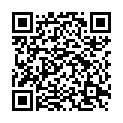|
|
|
| Module code: DFBME-316 |
|
|
4VU (4 hours per week) |
|
5 |
| Semester: 3 |
| Mandatory course: yes |
Language of instruction:
German |
Assessment:
Written exam, 120 min.; Participation in 5 laboratory experiments and 2 small group exercises
[updated 16.11.2023]
|
DFBME-316 (P610-0630) Mechanical Engineering, Bachelor, ASPO 01.10.2019
, semester 3, mandatory course
DFBME-316 (P610-0630) Mechanical Engineering, Bachelor, ASPO 01.10.2024
, semester 3, mandatory course
|
60 class hours (= 45 clock hours) over a 15-week period.
The total student study time is 150 hours (equivalent to 5 ECTS credits).
There are therefore 105 hours available for class preparation and follow-up work and exam preparation.
|
Recommended prerequisites (modules):
None.
|
Recommended as prerequisite for:
|
Module coordinator:
Prof. Dr. Moritz Habschied |
Lecturer:
Prof. Dr. Moritz Habschied
[updated 08.03.2022]
|
Learning outcomes:
After successfully completing this module, students will be familiar with the main material groups and will be able to describe the interrelationships between materials, manufacturing and components with a focus on the structural materials used in mechanical engineering.
They will be able to recognize the relationships between atomic solid structure, microscopic observations, and material properties.
They will be familiar with the tensile test, hardness test methods and the charpy impact test and will be able to determine and interpret the corresponding characteristic values. They will be able to attribute specific material behavior to the respective microstructure.
They will be able to assess material properties and derive the resulting possible uses.
In practical exercises, they will learn to work in teams to acquire new knowledge and to work on interdisciplinary tasks. They will be able to reflect their opinions and defend them with factual arguments.
[updated 16.11.2023]
|
Module content:
- Main groups of materials
- Structural description of solids
o Types of bonds
o Lattice structures
o Perturbation-free and -contaminated crystals
- Mechanical material behavior
- Alloy theory
- Influence of materials on production technology
[updated 16.11.2023]
|
Teaching methods/Media:
Lecture (3 Hours per semester week (=45 UE)): Seminaristic instruction
Exercise (1 hour per semester week (=15 UE)): lab experiments/exercises in the lecture hall on the following topics: Tensile testing (lab), Charpy impact test (lab), Hardness test (lab), Jominy end-quench test (lab), Hardening of aluminum alloys (lab), iron-carbon phase diagram (exercise), steel heat treatment (exercise)
[updated 16.11.2023]
|
Recommended or required reading:
- Bargel/Schulze: „Werkstoffkunde“, Springer-Verlag, Berlin, Heidelberg, New York, 12. bearb. Auflage 2018
- Weißbach W., Dahms M., Jaroschek C.: „Werkstoffe und ihre Anwendungen: Metalle, Kunststoffe und mehr“, Springer Vieweg; 20., überarb. Auflage 2018
- Hornbogen E., Eggeler G. und Werner E.: Werkstoffe: Aufbau und Eigenschaften von Keramik-, Metall-, Polymer- und Verbundwerkstoffen, Springer-Verlag
- Läpple, V.: „Wärmebehandlung des Stahls“, Verlag Europa-Lernmittel, Haan-Gruiten, 11. aktualisierte Auflage 2014
- Läpple, V., Kammer, C., Steuernagel, L.: „Werkstofftechnik Maschinenbau“, Verlag Europa-Lernmittel, Haan-Gruiten, 6. Auflage 2017
- Greven, E., Magin, W.: „Werkstoffkunde und Werkstoffprüfung für technische Berufe“, Verlag Handwerk und Technik; 18. Auflage 2015
[updated 16.11.2023]
|

